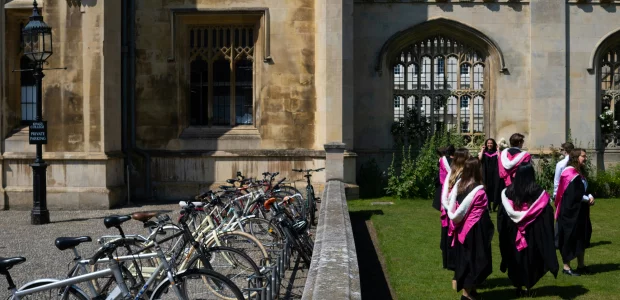
Last time I shared with PrepAdviser’s audience the story of how I chose my Master’s programme. My intimate confession continues in this blogpost, but this time, I will focus on my choice of university.
Once my decision to study Public Relations became final, I embarked upon a rather tedious journey of research and pondering. This voyage’s final destination was the university whose brand logo I would one day proudly put on my LinkedIn profile.
“Country of Origin” Effect
My thought process started with identifying the country that best suits the programme of my choice. This might seem counterintuitive at first, but it is very important to consider. Why? Because the country that hosts your university is as much of an influence in terms of the style and quality of teaching as is the educational institution itself. Some countries have traditions in Marketing Communications (Netherlands, United Kingdom, Scandinavian countries); others have a history in Economics and Finance (Germany, UK, US), in Tourism (France, Spain), or in niche studies such as Industrial Design (Italy and Germany), Investment Banking (Switzerland) and even Environmental Technologies (Sweden).
In Marketing, this is called the “country of origin” effect, and it is an important part of a consumer’s decision-making process. Surely you would agree that a student would prefer to “consume” a certain school brand over another, much like a consumer would prefer to eat Swiss chocolate and drink French wine?
In my case, I immediately identified London as “the” place to study Public Relations. Britain’s proud traditions of eloquent speech and famous PR practitioners, a rich media landscape and no-nonsense attitude to business, coupled with sophisticated manners and an unwavering commitment to afternoon tea-drinking turned out to be more than sufficiently convincing.
Naturally, things became a bit more complicated once I decided that I was going to London. My next move was to choose the right university.
“Value for Money”
Here, my decision became influenced by three equally important factors: the cost of tuition fees, the quality of the university offering the Master’s programme, and the financing opportunities it presented to prospective students.
Basically, it came down to value for money.
Information about the tuition fees and the scholarship opportunities are easily found, but the quality of the programme, and the university itself, is a tricky matter.
It involves a lot of research.
So that is what I did. I spent a good 2-3 weeks reading university rankings, media articles and student reviews. I researched carefully about the courses presented within the Master’s programme, and considered very cautiously the reputation of the faculty where the programme was being taught.
One tip I’d give here is to stay away from universities which tend to overpraise themselves, and to try and draw information from as many independent and unrelated sources as possible: the media, your peers, online rankings, the university’s alumni, and the university’s own detailed description of the Master’s programme.
The Excel Table
I decided that the best way to take the ultimate decision was to weigh-in the pros and cons, so I made an Excel table. As nerdy as this sounds, it really helped me make a cool-headed choice that I knew I would not regret.
In the table, I put the names of a dozen universities, the fee that they were charging and the scholarship opportunities that they presented.
From there on, I started marking them off one by one based on how expensive they were, whether I qualified for their scholarships, and whether there were any scholarships at all. Of course, as I reached for the “delete” button on my keyboard, I did my best to avoid dismissing the ones that showed potential despite the high costs.
This was the first filter, and it narrowed down my choices to only a few.
The second filter was perceived quality. Note that despite the countless hours you’ve put into quantifying this factor, it will always remain subjective. There is no formula for figuring out what is your best choice of university based on reading school rankings, alumni testimonies and articles in the press. In the end, it is a matter of personal preference.
By the time I applied the second filter on my Excel table, my choices were whittled down to only three from a starting pool of roughly twelve.
The Final Decision
I had already spent over a month of intensive researching and perpetual pondering about this most important decision. And it was around this time that I knew the time had come to proceed with my applications. But as I had realised that Master’s applications take a lot of time and concentration, I decided to only submit applications to two universities.
However, I would not recommend that you do the same. If I had the choice, I would have probably applied to at least three. The logic for this is quite simple. The more you apply to, the better your chance of success.
Fortunately, I got accepted to both.
The final decision to focus my efforts on studying Public Relations at the University of Westminster came down to this: it offered a suitable scholarship; it charged an acceptable tuition fee; and its Media faculty had one of the very best reputations in the UK.
My Personal Advice
My personal advice to PrepAdviser’s readers when it comes to choosing a university for your Master’s programme is to balance your decision by taking into account the following factors:
- Can you afford the tuition fee and living expenses?
- Are there any options for financing your Master’s studies that will allow you to leverage your budget and possibly consider more expensive programmes?
- What is your personal, but well-researched opinion, about the quality and reputation of the programme, faculty and university itself?
Do this by:
- Conducting extensive research into the above-mentioned factors
- Systemising your choice (create an Excel table, write it down in a notepad, etc.)
- Narrowing down your options
- Applying to as many universities as you can
I promise you that the least you will achieve by following this process is that you will not regret your choice. And believe me, this is very important.
Check out One-year Master’s programmes


Comments